I work better at night. At around midnight, I'm more prone to entering a state of relaxed focus, my mind making more lateral connections when reading or coming up with ideas that will likely have great positive impact on my personal life and work.
This happens after a hard workout too, or after having a stimulating discussion with a trusted, unbiased, and driven friend.
The conflict comes every day I wake up in the morning, and it's as if the open tabs of useful thoughts in my mind have closed, refreshed, but with no Command+Shift+Tab to reopen them exactly the way they were. I feel different in the morning; without the vision and subjective "charged" state I felt the night before, my mind doesn't give me a clear path to execute on the useful thoughts from yesterday. I don't have full access to that action-taking state.
It's logical that the subjective impact of thought and motivation changes from day-to-day. I wouldn't want to remember and feel the embarrassment from a social faux pas I made last week, every day. I just want to be able to capture and feel more of the good stuff from the day or week before. To feel the same emotional impact as when I first came across particular insights, so that I'll follow through on that with fervor and persistence.
Is there a way of hacking the brain to get the upside, without incurring the downside?
It's almost as if I existed in two states: one which thinks that it has done enough and deserves surface pleasures and rest - akrasia, and its opposite, non-akrasia - buzzing with quiet energy, working towards fulfillment, constantly alert to ideas that I can implement.
I know that being in a state of non-akrasia for sustained periods of time is possible. There are the Elon Musks of the world, those who work 80 hour work weeks towards their very specific cause of choice. I choose to believe that they were not so much genetically predisposed to do so, as they had something to protect as well as systems that ruthlessly reduced friction and distraction and ritualized the state of Flow.
The importance of colonizing mars and reversing climate change are likely kept as open tabs at the forefront of Musk's mind, thoughts with deep significance to him, that has guided every business or engineering decision he has made.
Given the limitations of working memory, how do I keep my useful thoughts as open tabs after a night's sleep, or at least be able to access the full "History" and restore them? I'd imagine that if I was able to hack my brain to access the long-term-thinking, fulfilment-driven mode of non-akrasian thoughts, there will be exponential gains in the areas of my life that matter - no more instinctive checking, mindless scrolling of social media as distraction to fulfilling work, no more superstimuli foods to damage physical and mental health.
The cost of giving into temptation will be greater than the short-term benefits precisely because the open tabs show me that I'm forgoing a much greater physique or career impact if I take the easy path.
More importantly, it will give me the confidence to follow through on all of those thoughts in the exact way I intended to. Being able to remember the full rationale and potential impact of these thoughts, I will be able to execute them without second-guessing myself. Finding a system or trigger to access these thoughts from my subconscious, in order to act with conviction and consistency with my long-term goals - that is my priority at this point of time.
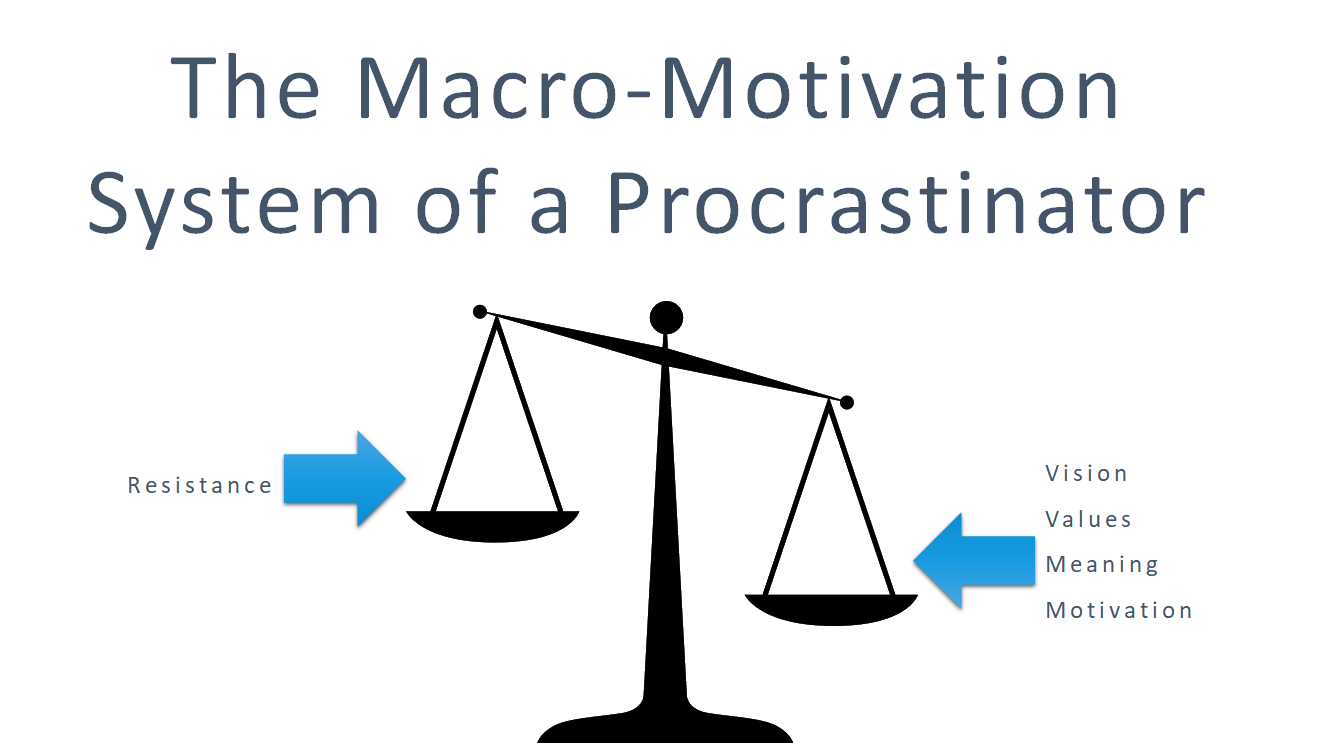
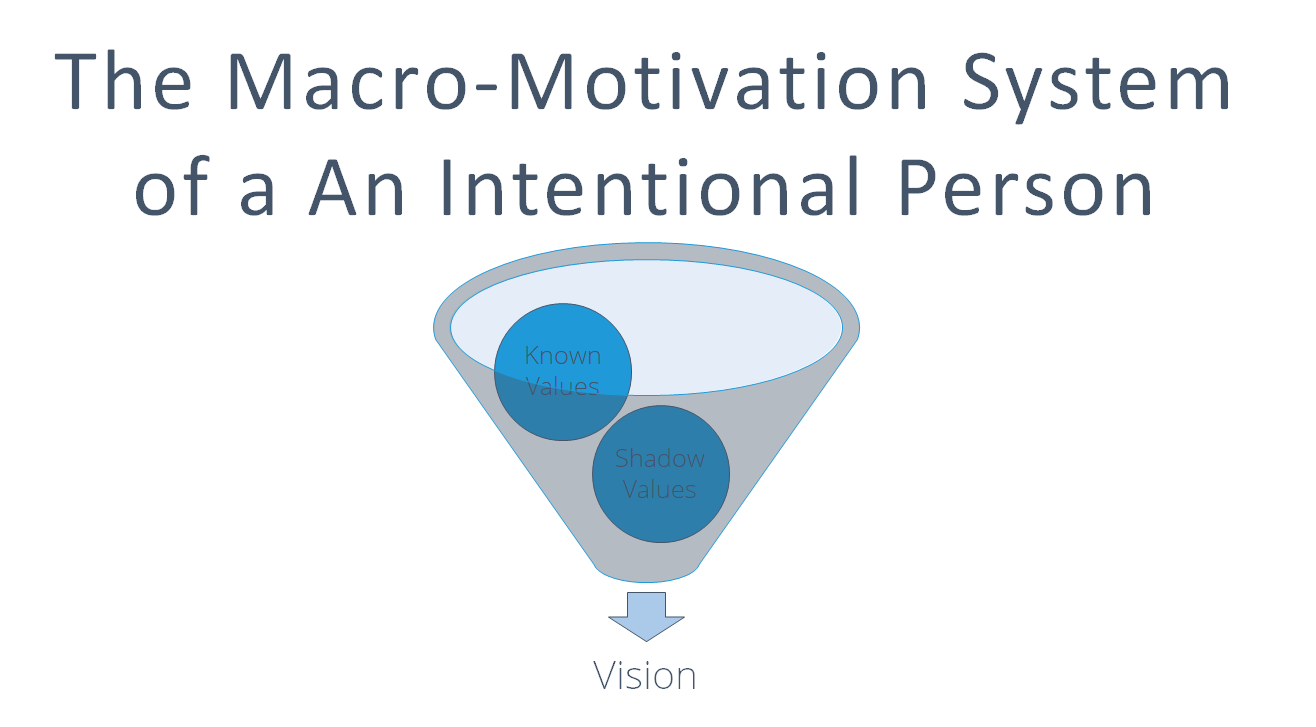
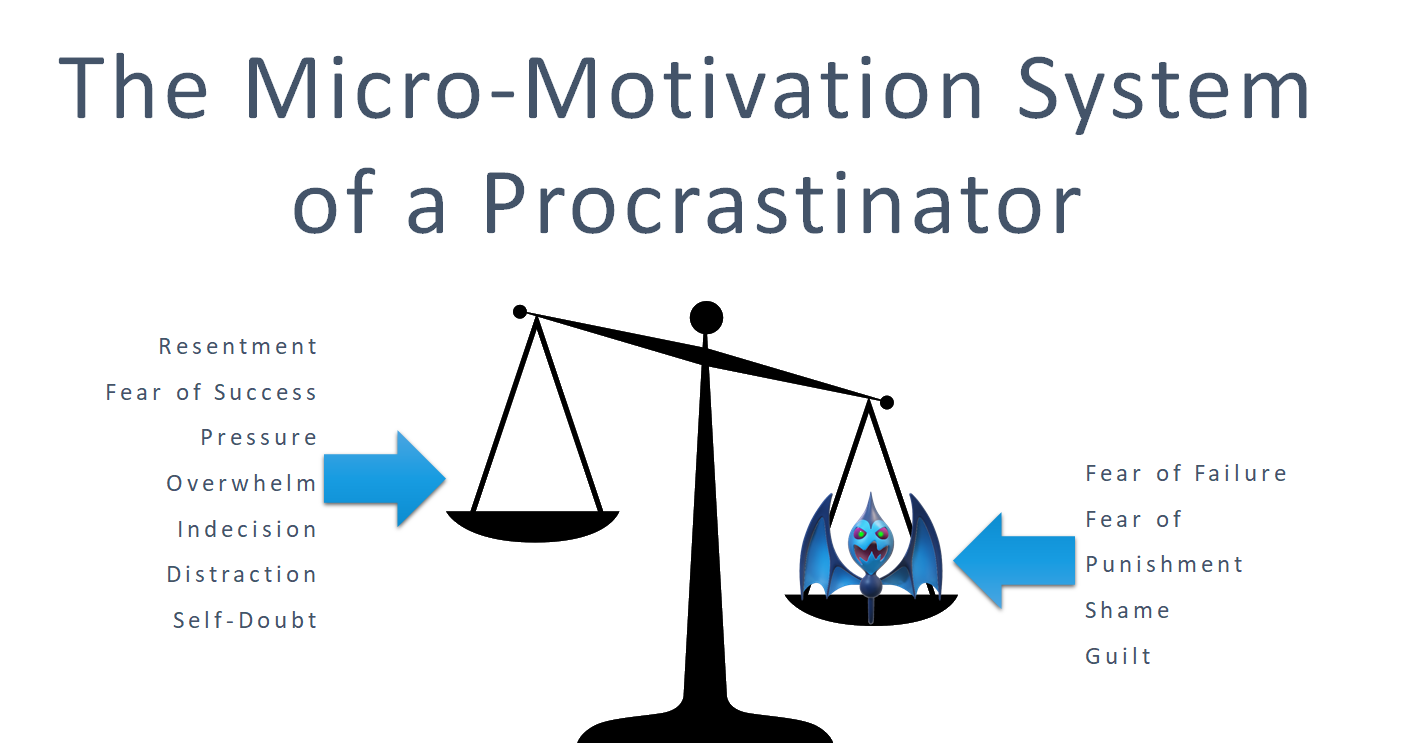
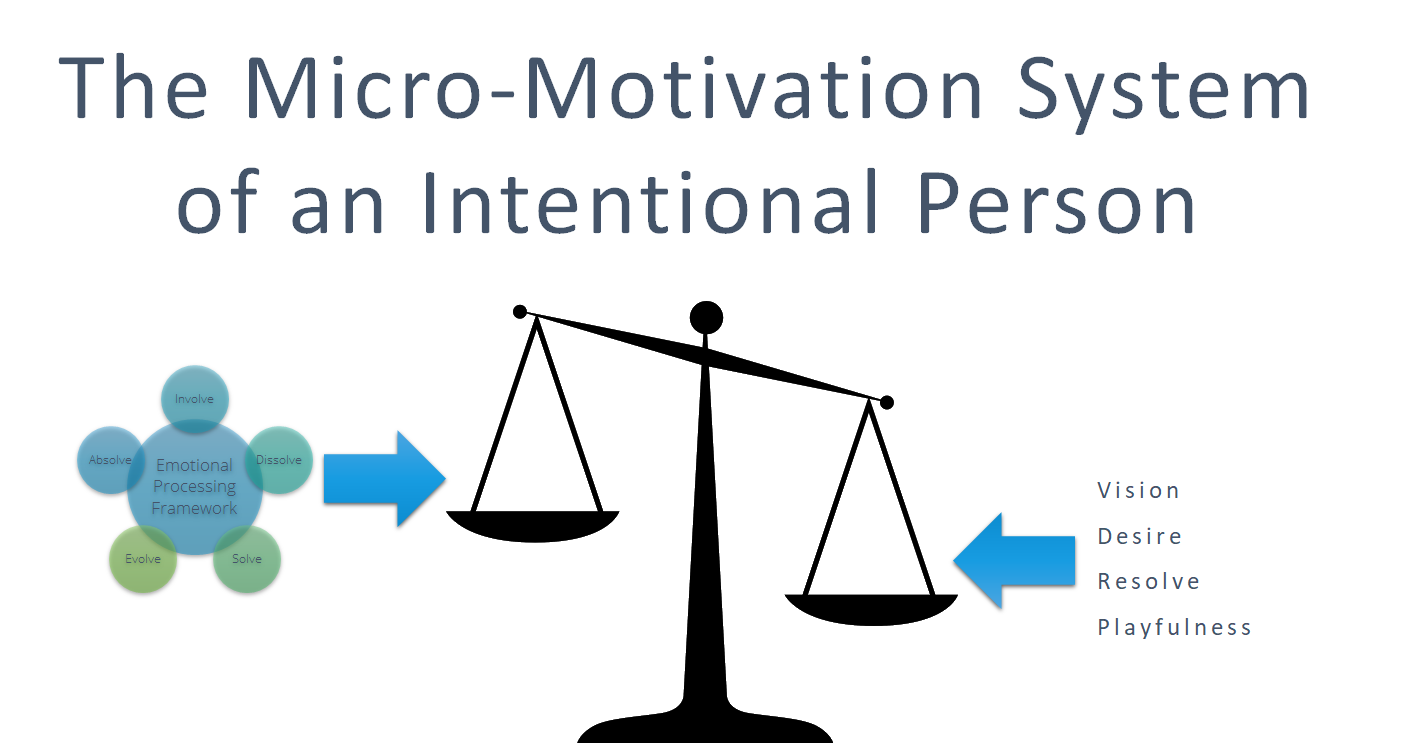




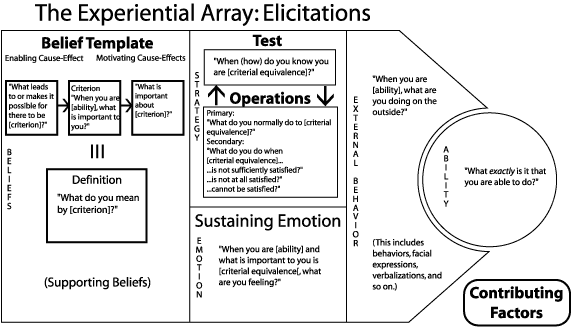
I've done a bit of work on this. I'll try to map out my understanding, and you'll have to figure out which parts apply to your situation.
First, you've got to ask yourself, why do you have the oscillating motivation in the first place? What's going on there?
One answer, on a macro level, is that you're oscillating between being driven by your vision/mission/purpose, and being driven by your resistance - the thing that fears for your safety, or wants you to get rest, or whatever.
To stop these oscillations, the first thing to do is recognize what your resistance values, and incorporate that into your motivation system.
On a micro-level, it may be that you've learned to motivate yourself through shame/guilt and other negative emotions. So the longer you go without doing your task, the bigger your shame/guilt gets, until it finally causes you to act... then your shame and guilt goes away. Again, this creates oscillations:
To deal with this, you have to again deal with both sides of the equation. First, you have to learn how to process and remove all the negative emotions you have about a task. Then, you have to learn how to motivate yourself using positive rather than negative emotions
Once you've switched to a sustainable motivation system, the question becomes: How to connect with that motivation.
There are two parts to this:
Again, we can split these into macro and micro.
On a macro level, we connect with our motivation and resolve by creating "creative tension" for our vision using a tool called Vision Contrasting. By letting ourselves see the tension between our vision and current state, it gives us resolve to achieve our vision. I recommend doing this every morning.
On a micro-level, we get into the proper state by asking ourselves "What's the nearest state to what I'm feeling right now that would allow me to feel meaning?," Then, "What value could I focus on to most quickly get into that state." This is called the "Meaning Maker."
On a Micro-Level, we can do a similar thing as vision contrasting, but instead contrast the end state of our task to the state of our task as it is now. This is called Motivational Contrasting.
Then, we need to figure out how we can get into that playful, creative flow. To do that, we have to ask ourselves "What's the nearest state to the one I'm feeling right now that would allow me to enjoy the task?", then "What single aspect of the task could I focus on or change to get me to that state?" This is called the Play Maker.
So, at this point:
You've stopped your vision and motivation from oscillating.
You've learned how to reconnect with motivation in the morning.
You've learned how to reconnect with the creative state that allows you to work best on your task.
Obviously, there's a bunch here I left out, but hopefully this helps a bit. I do teach this stuff for a living, so feel free to reach out if you want to take any of this further.
Yes, essentially was taking the different tools and slotting them into multiple arrays, allowing me to break up each "ability" related to overcoming procrastination into it's component parts.
... (read more)The 90's looking website that hosts the two books on the experiential a